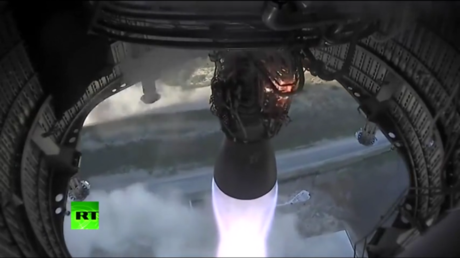
Fifth time’s the charm it would seem, as SpaceX has finally managed to launch its next-generation, deep-space rocket from its facility in south Texas. While 500ft in the air is not exactly Mars, it still marks a win for Elon Musk.
The version which flew on Tuesday is the largest test vehicle of SpaceX’s Starship to achieve liftoff. Footage from the scene shows the majestic, if short-lived, flight.
Future iterations of SpaceX’s Starship will one day become the company’s flagship offworld people carrier to destinations like the moon and Mars, and is expected to be 400-feet high and 30-ft wide, with a payload of 100 tons of cargo.
Starship is designed to piggyback to space strapped to a giant rocket booster, known as Super Heavy, both of which will be powered by SpaceX’s latest iteration of the Raptor rocket engine.
Tuesday’s test version had just one Raptor engine but the final version is expected to boast six such engines. It will also have a nose cone for improved aerodynamic flow, not a weighted block to simulate cargo weight.
For a company that just brought NASA astronauts to and from the International Space Station and carried out the first water landing for astro- or cosmonauts returning from orbit in 45 years, a 500-foot leap into the air may seem somewhat underwhelming.
However, the feat has proved to be somewhat of a white whale for the eccentric billionaire Musk and his team, as four of SpaceX’s previous Starship tests this year have either burst, imploded or exploded prior to liftoff. So, 500ft is somewhat of a giant leap for the company’s flagship vessel.
Tuesday’s launch was to test the controlled takeoff and landing of the vehicle, something which will be mission-critical if it ever hopes to touch down on Lunar or Martian soil.
Think your friends would be interested? Share this story!




